Vrindavan, India
After a 10 day Vipassana trip, void of any talking, mobile phone, books to read or even a notepad to write on - just meditation, I came back to a noisy Kathmandu with a calm and content silence. The mind knew how to make it all disappear and exist in a stillness that enveloped itself into the noise and collapsed it to dust.
Not a day later after the 10 day Vipassana course, I was in India, Vrindavan. The mind’s sanctity was going to be tested.
Vrindavan, a holy city about three hours drive from Delhi, is where Lord Krishna, an important figure in Hindu mythology, spent most of his childhood.
Devotees roll around and drag each other through patches of dirt because it’s the “same” patch of dirt that Krishna played in as a child.
A 20 minute drive from Vrindavan, a place called Mathura, is where Krishna’s story begins. Kamsa, a tyrant ruler, is given a prophecy that a child of his sister, Devaki, is going to kill him. Kamsa murders most of Devaki’s children as soon as she gives birth. Krishna, fated to be born into the hands of a murdering uncle, but unlike his infanticide siblings, is destined otherwise. As soon as he’s born, Krishna’s father, Vasudeva, carries him away, escaping in the darkness of the night on a boat through the Yamuna river. The bleak prophecy for Kamsa eventually came true.
Yumana River, The river through which Vasudeva escaped with his son, Krishna
My grandparents in their old age giving up the sacramental structures of society, had moved to Vrindavan and built an Aashram in an area of Vrindavan called Devanankunda. Although I went to Vipassana meditation, my inclination is more spiritual than religious - so the trip to Vrindavan was purely to see my grandparents, particularly my maternal grandfather whom I remembered as a strong ardent man, but when I spoke with him on the phone most recently, it was a one sided conversation - he’d become so weak, he couldn’t speak. I had to see him.
There are as many flies buzzing around in Vrindavan as there are people.
A fly will sit on your food, so you can either go hungry or you convince yourself that flies have sat on everyone’s food and they’re still alive and you will live too.
There are monkeys that will steal your glasses. You will then have to buy Frooti (juice) or a fruit from a vendor, and toss it to the monkey if you want your glasses back. The running joke there is that there’s a lucrative interspecies venture between the monkeys and the vendors using a simple business model - monkey steal valuable, victim buy from vendor to get valuable back, monkey get food, vendor makes money.
A monkey enjoying my glasses
Auto rickshaws zip through the small alleyways. Their constant honks contrast the religious bells that one might expect. Because of the open sewage, a pungent smell fills the air. Its only amplified by the heat of the sun, overpowering the incense from the temples. Aloof holy cows leave gobar everywhere. There are numerous temples surrounding the area - Prem Mandir, ISKON etc. They all devote themselves to Krishna, they are all grandiose structures that seem to be in a competition to out do each other, rather than creating a place for authentic devotion.
How can one give into a place if it’s hard to overlook the fact that it was purposefully built to attract devotees via a method of outward superficiality. As much as you learn to excuse the flies, you learn to excuse the swarm of people that push you, honk at you, cut you off in line -
“they are here for devotion” you tell yourself -
but how do I make sense of the indifference people show to one another in the name of devotion?
At night the glorious lights of the popular ‘Prem Mandir’ attract Krishna devotees to come inside. Because of the crowd, inside the temple, you don’t even have to walk, you are moved by the force of numbers in the crowd.
But just outside the gates of the temple, the lights shine,
on a child,
who dances on a tightrope,
while eating a snack.
A feat more impressive than the light show that illuminates her.
The contradictions in India are not new. One gets to worship, others beg to have the privilege to worship. Krishna’s siblings were fated to be murdered, but Krishna survived and was destined to become a emobodemnt for the essence of humanity. Chance, fate, destiny - so much of what we are given we cannot control.
The meditation vipassana retreat was not easy. The struggle was more inward. Vrindavan was more of an outward contest, which stopped me from going inside. Chance, fate, destiny. This trip had been last minute, I hadn’t planned on going, I was barely able to get flight tickets. Perhaps there is a pull. After the pull though the interpretation of ones reality is what conjures up a perspective of your place in the reality. That’s where we can assert control. Beat “fate” with action.
I shifted my focus to the Ashram my grandparents had built. I noticed there were a lot of people who had been fated one way but through choice had found ways to change reality.
Lets go to the Aashram.
The Aashram was a pressure cooker bursting with life. There was a Mahaguru. An auspicious teacher. An unassuming man, with long curly hair, a kind demeanour and a beard that is typical of a sage. He had spent months in meditation inside a cave. Throughout the weeklong inauguration of the Aashram, there would be devotees who had come just to meet him. In the afternoon’s he would recite the Bhagavat Gita for hours on end, and explain the philosophy behind the stories.
Throughout the day and as background score to the stories, there was music played by professional artists who had devoted their lives to learning classical music.
Then there was music played by children, who were on their own path to devotion, who sang, danced and played without tiring throughout the day. An unsuspecting submission to a craft.
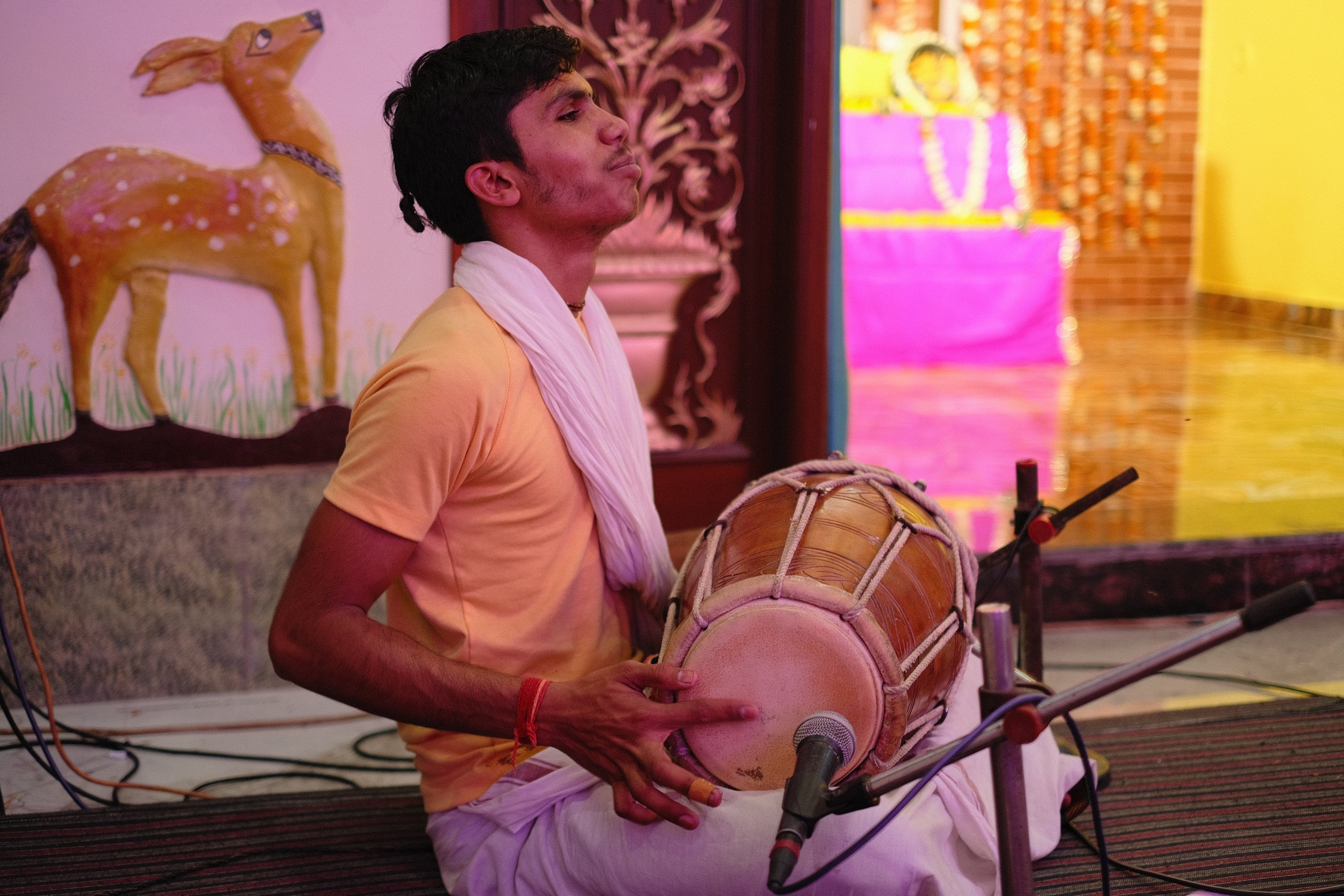
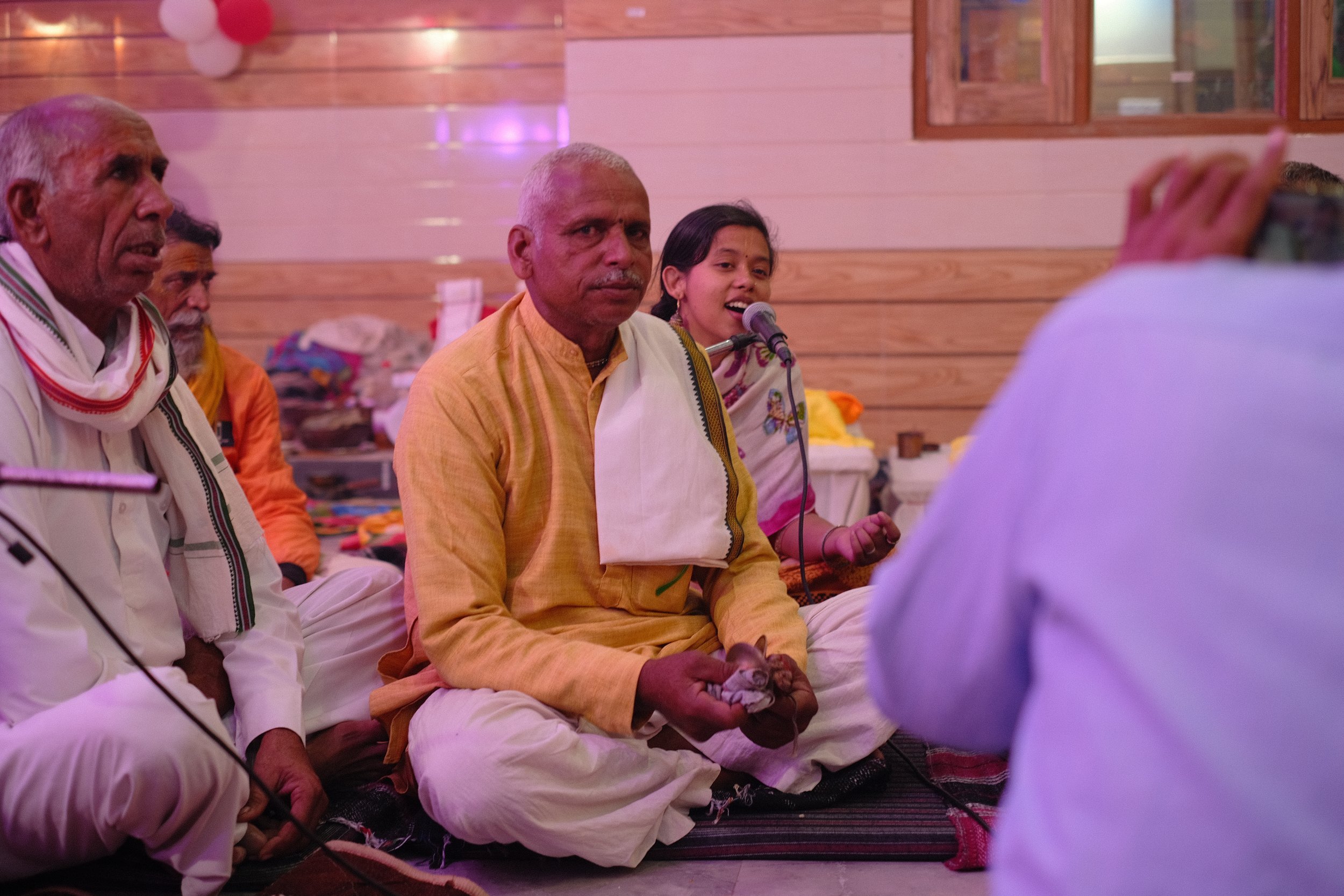
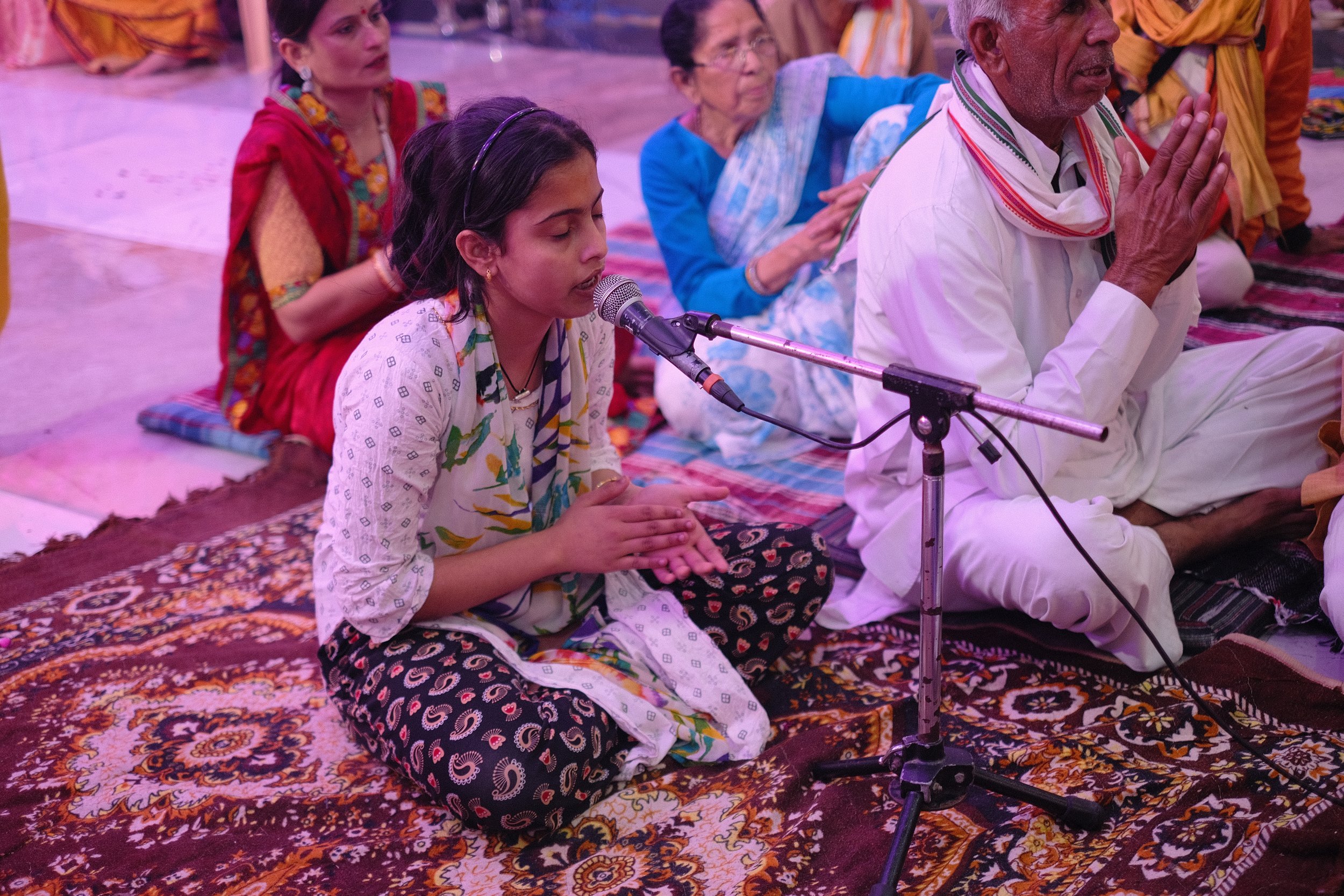
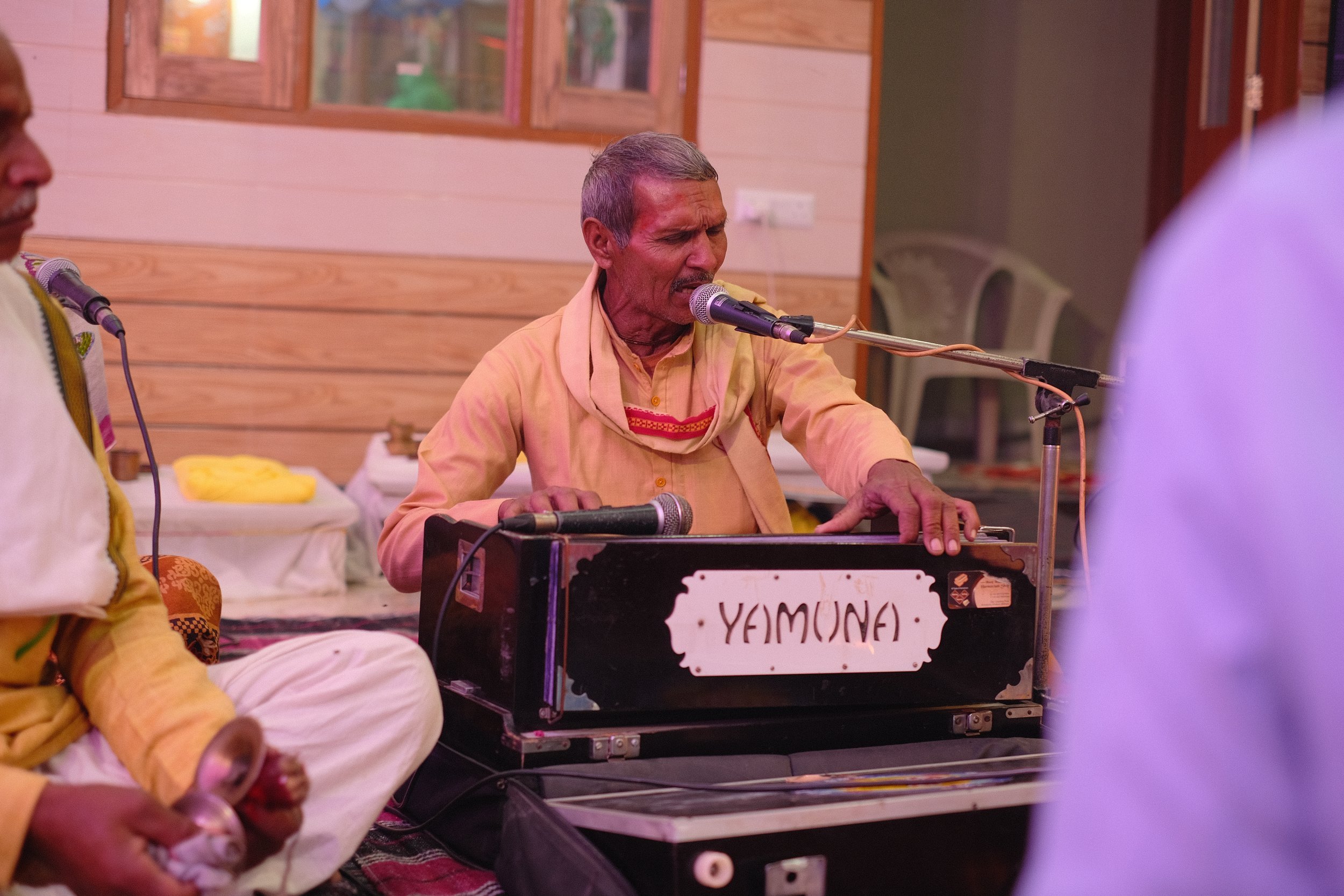
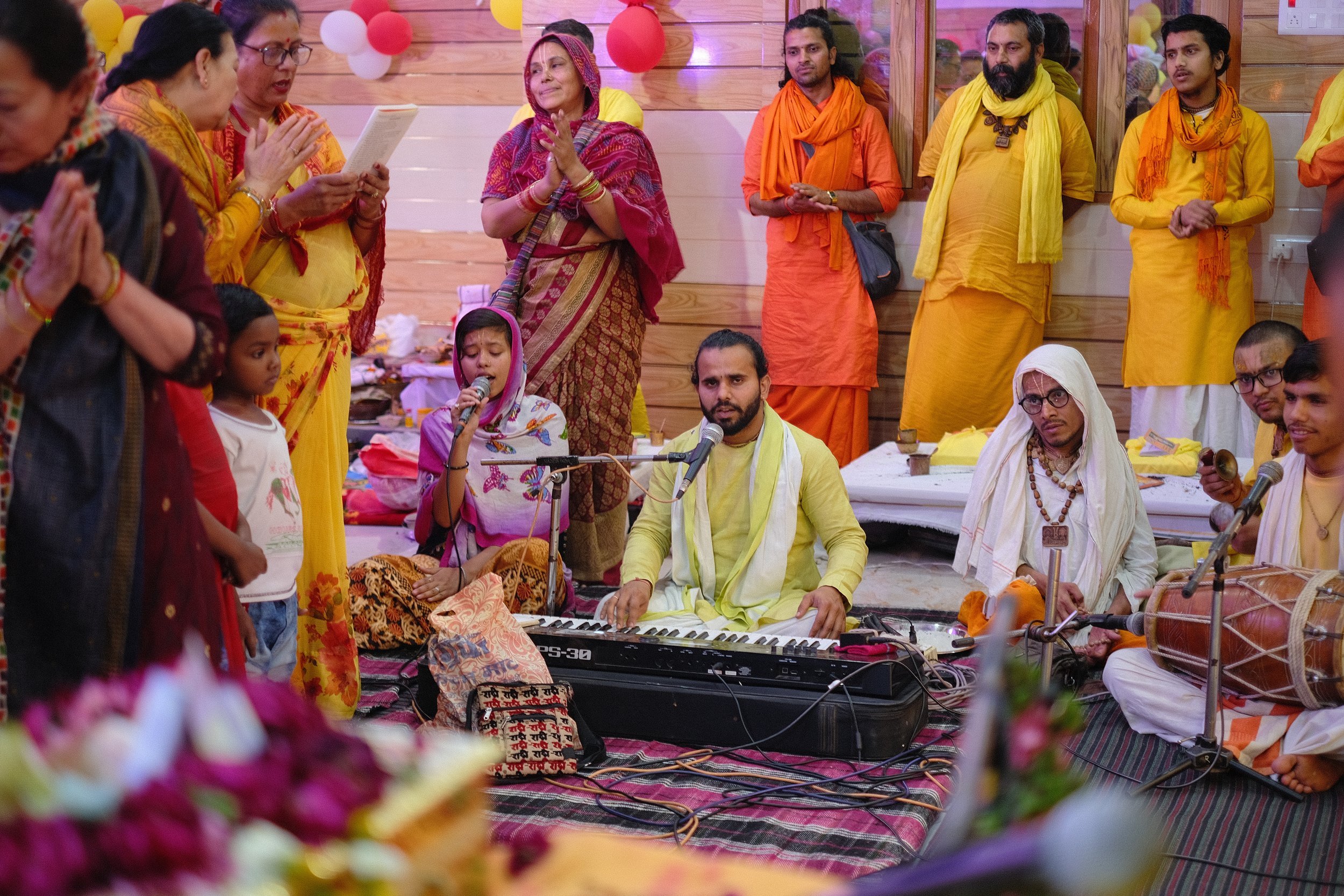
There were disciples, aged anywhere between 18-30 who did everything. They cooked, served, cleaned, prepared for and ran sermons, sang and played instruments for hours on end, danced, were unofficial tour guides to some of us, and one had donated blood to my grandmother when her haemoglobin had run scary low.
Some come from underprivileged backgrounds where being in an Aashram gives them purpose in their lives without having to worry about food or a roof under their heads. Some have degrees in engineering and studied to be doctors, but have given up that way of life, to find meaning through devotion.
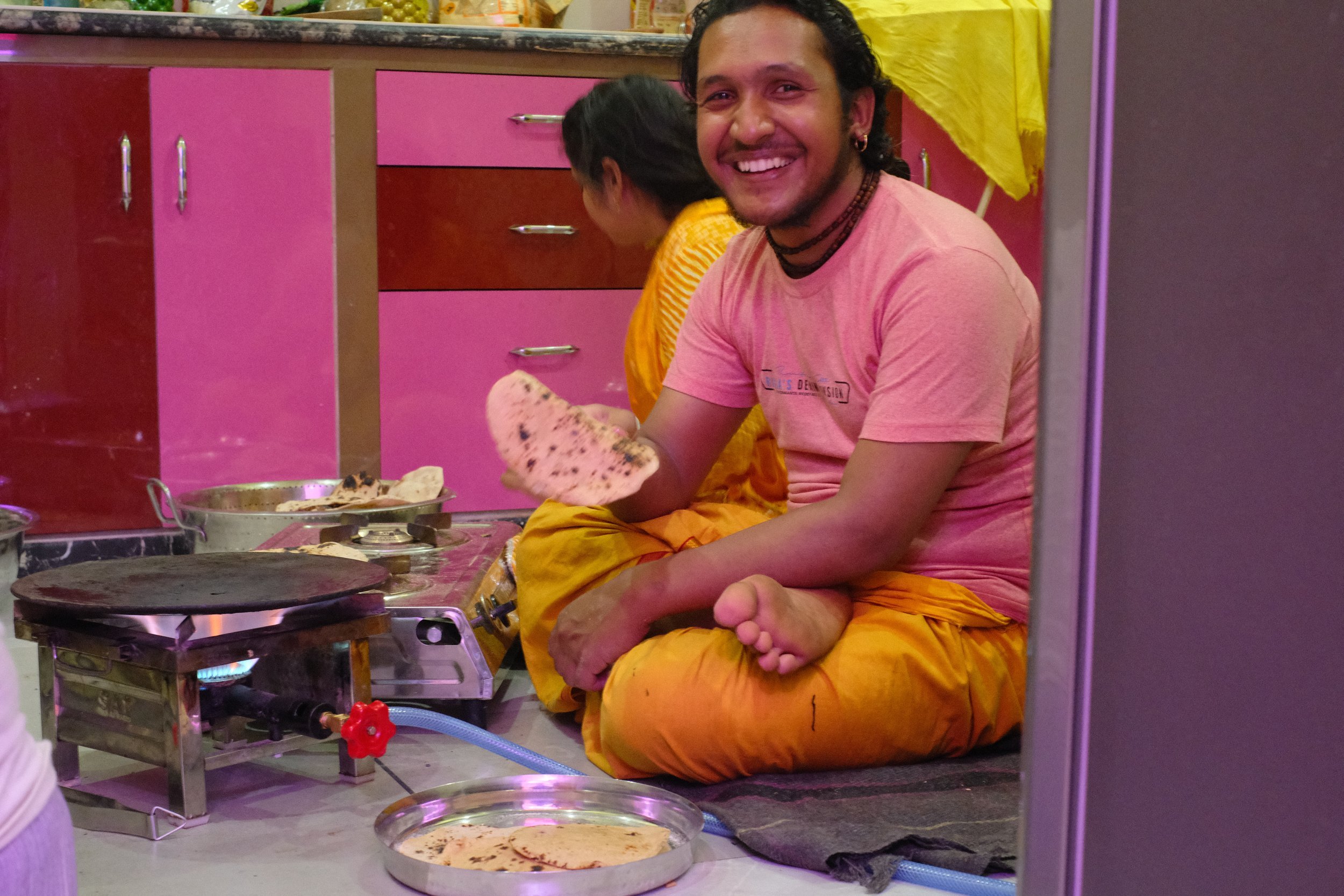

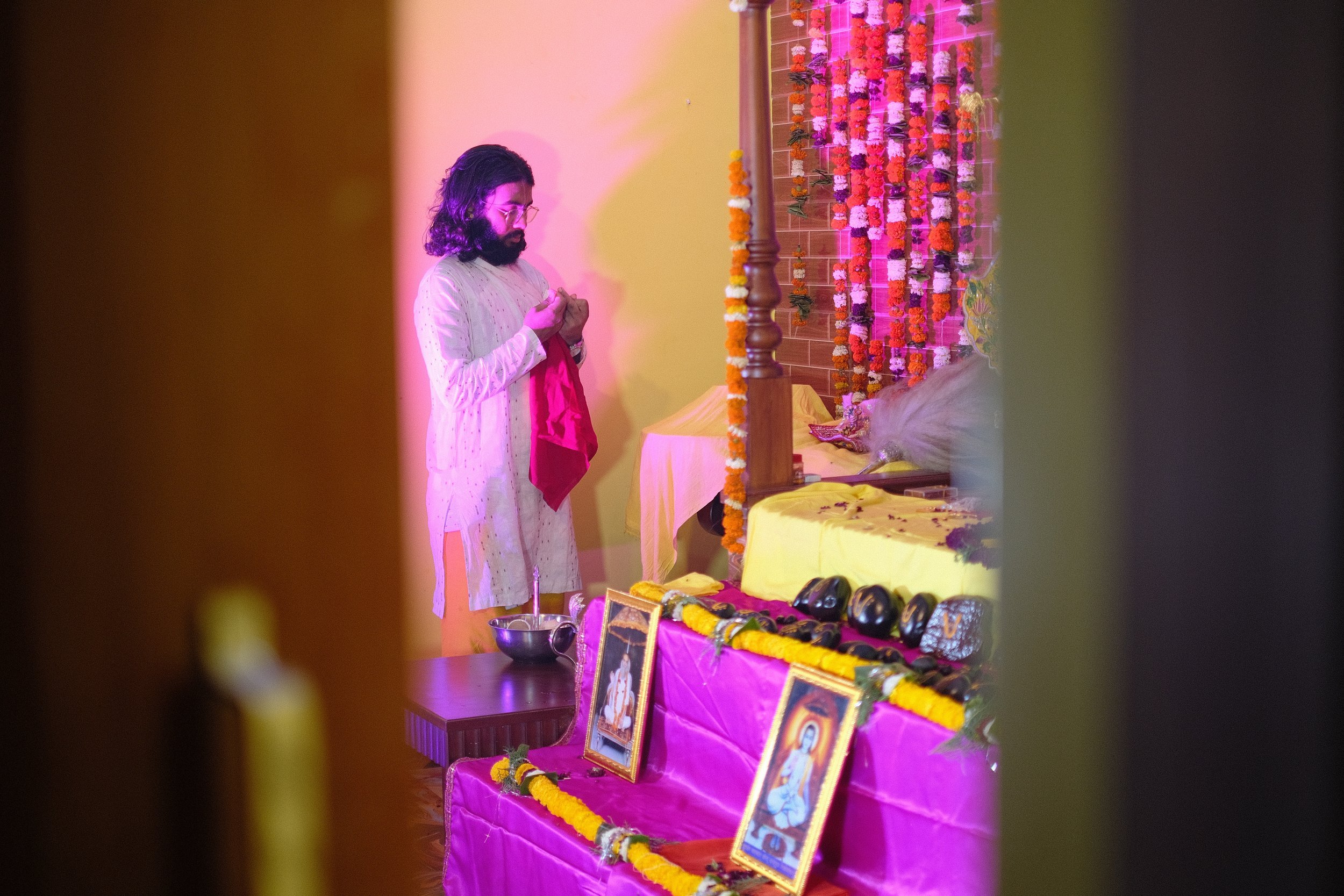
All of this, the music, the devotion, the pujas, the rituals, the cooking, the eating, the dancing, the singing, with the strangers, the disciples, the guru, the musicians, the dancers - happens simultaneously under one roof for days on end. The Aashram is in a constant state of atomic vibration. These are collective souls that conjure up a reality in which devotion and giving through various mediums is the way to put aside the fate, the chance, the luck of circumstance - and find direction on one’s own terms.
It was a tragedy that my grandfather was bed ridden for the inauguration of the Aashram that he helped build. But on the last day of the inauguration using the walls as support he timidly stood up his body shaking still from the weakness. Hands behind his back, he made his way towards the central idols and walked around it. Everyone was in disbelief.
After days of being bed riddin, on the final day of the innaugration grandfather musters up the energy to walk in the Aashram he helpt build
Later that night the disciples and the gurus sang, I joined in and danced with them. For the first time in my life I danced with my grandmother.
We’re all figuring. We’re subject to chance. Yet we still have choice. Even through my obvious scepticism the Aashram brought me in, accepted me, I chose to see them too, and came away with a deep appreciation for different ways of living.

